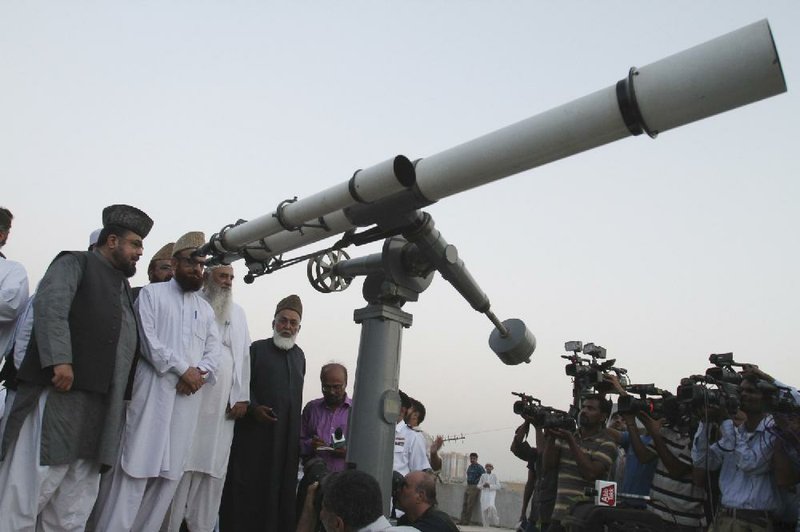RIYADH, Saudi Arabia -- Muslims around the world today will mark the start of Ramadan, a month of intense prayer, dawn-to-dusk fasting and nightly feasts.
Muslims follow a lunar calendar and a moon-sighting methodology that can lead to different countries declaring the start of Ramadan a day or two apart. But this year, religious authorities in Saudi Arabia, Egypt, Iran, Indonesia and most other parts of the world announced that based on their sightings of the moon, daily fasting will begin today.
Authorities in Pakistan have yet to announce the sighting of the moon.
During Ramadan, observant Muslims abstain from eating and drinking from sunrise to sunset for the entire month. A single sip of water or a puff of a cigarette is considered enough to invalidate the fast.
The fast is intended to bring the faithful closer to God and to remind them of the suffering of those less fortunate.
Muslims often give to charities during the month, and mosques and aid organizations organize free meals for the public every night.
Fasting also is seen as a way to physically and spiritually detoxify through exercising self-restraint. Sexual intercourse also is off-limits during the day, and Muslims are encouraged to be mindful of their behavior and to avoid gossiping, cursing and quarreling.
This year, Ramadan falls during the summer, which means long, hot days of fasting. Mainstream scholars advise Muslims in northern European countries with 16 hours or more of daylight to follow the cycle of fasting of the nearest Muslim-majority nation to avoid impossibly long hours without food or water.
Chairman Pia Jardi at the Finnish Muslim Union in Helsinki said Muslims there will fast for 21 hours and have just three hours -- or even less -- for eating, drinking and prayer before the sun rises again.
"The good thing is that you'll eat with moderation and that you'll stick very much into the true, simple spirit of Ramadan," Jardi said.
"Long fasting time means you rarely want to eat heavily."
The world's 1.6 billion Muslims traditionally break their fast like the Prophet Muhammad did about 1,400 years ago, with a sip of water and some dates at sunset. Then family and friends gather for a large feast. Part of the evening is often spent at the mosque in prayer.
Children, the elderly, the sick, women who are pregnant or menstruating and people who are traveling are not obligated to fast. Non-Muslims or adult Muslims not observing the fast who eat in public during the day can be fined or even jailed in some Middle Eastern countries, such as Saudi Arabia and the United Arab Emirates.
Fasting during Ramadan is one of the five pillars of Islam, along with the Muslim declaration of faith, daily prayer, charity and performing the hajj pilgrimage in Mecca.
Muslims celebrate the end of Ramadan with a three-day holiday called Eid al-Fitr.
Information for this article was contributed by Jari Tanner of The Associated Press.
A Section on 06/18/2015
